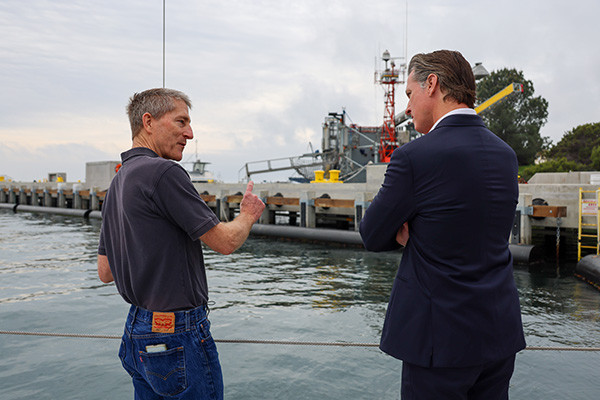Innovative Hydrogen-Hybrid Research Vessel Approved for UC San Diego's Scripps Institution of Oceanography
Key Ideas
- The American Bureau of Shipping (ABS) approved the preliminary design of a cutting-edge hydrogen-hybrid research vessel for UC San Diego's Scripps Institution of Oceanography, set to have a significant impact on zero-emissions maritime propulsion and California's climate goals.
- The vessel, named California Coastal Research Vessel (CCRV), will focus on various research missions to study coastal environments, climate change impacts, and oceanic processes while showcasing the crucial role of hydrogen in a sustainable future.
- Apart from its research capabilities, the CCRV will serve as a hands-on learning platform for students, aligning with UC San Diego's commitment to educating the next generation of scientists and policymakers while emphasizing environmental stewardship.
- The project received significant funding support from California state legislators and aligns with the state's initiatives towards clean energy innovation, with the vessel being a Tier 1 marquee project of California's hydrogen hub, eligible for additional federal funding.
The American Bureau of Shipping (ABS) has given the green light to the preliminary design of a groundbreaking hydrogen-hybrid research vessel intended for UC San Diego's Scripps Institution of Oceanography. This innovative vessel, known as the California Coastal Research Vessel (CCRV), will incorporate a hydrogen fuel cell propulsion system, enabling zero-emission operations for a considerable portion of its missions, including all operations in state waters. For longer ventures, the ship will utilize clean diesel generators to supplement power. The CCRV's design, crafted by Glosten, not only meets rigorous technical and safety criteria but also paves the way for broader adoption of hydrogen-powered propulsion at sea.
The primary focus of the CCRV will be conducting various research missions, ranging from studying marine life and oceanic phenomena to analyzing the impacts of climate change on coastal ecosystems. By offering insights into crucial matters like sea-level rise, ocean acidification, and harmful algal blooms, the vessel will play a vital role in safeguarding California's coastal environment and advancing the state's commitment to combating climate change.
Moreover, the CCRV will serve as a multifaceted educational platform, providing hands-on learning experiences for students and serving as a training ground for future scientists, policymakers, and leaders. This educational aspect aligns with UC San Diego's dedication to shaping the next generation of environmental stewards and professionals. The project received substantial financial backing from California's state legislators and has garnered support from top officials, including California Governor Gavin Newsom, who commended the vessel's contribution to California's clean energy transition.
The CCRV's approval marks a significant milestone in the maritime industry's journey towards sustainable and eco-friendly transportation solutions. By pioneering the use of liquid hydrogen as a marine fuel, the vessel has set new standards and precedents for upcoming hydrogen-powered ships. The project's collaboration with regulatory bodies like the American Bureau of Shipping and the U.S. Coast Guard underscores a commitment to safety and compliance, essential in implementing cutting-edge technologies like liquid hydrogen propulsion.
In conclusion, the California Coastal Research Vessel symbolizes a critical advancement in green maritime technology, emphasizing the pivotal role of hydrogen in achieving carbon-neutral operations. Its integration of state-of-the-art instruments, its focus on research and education, and its alignment with broader environmental and educational goals position the CCRV as a trailblazer in sustainable marine exploration and innovation.
Topics
Maritime
Technology
Innovation
Education
Funding
Research
Environmental Protection
Public Policy
Oceangraphy
Latest News
